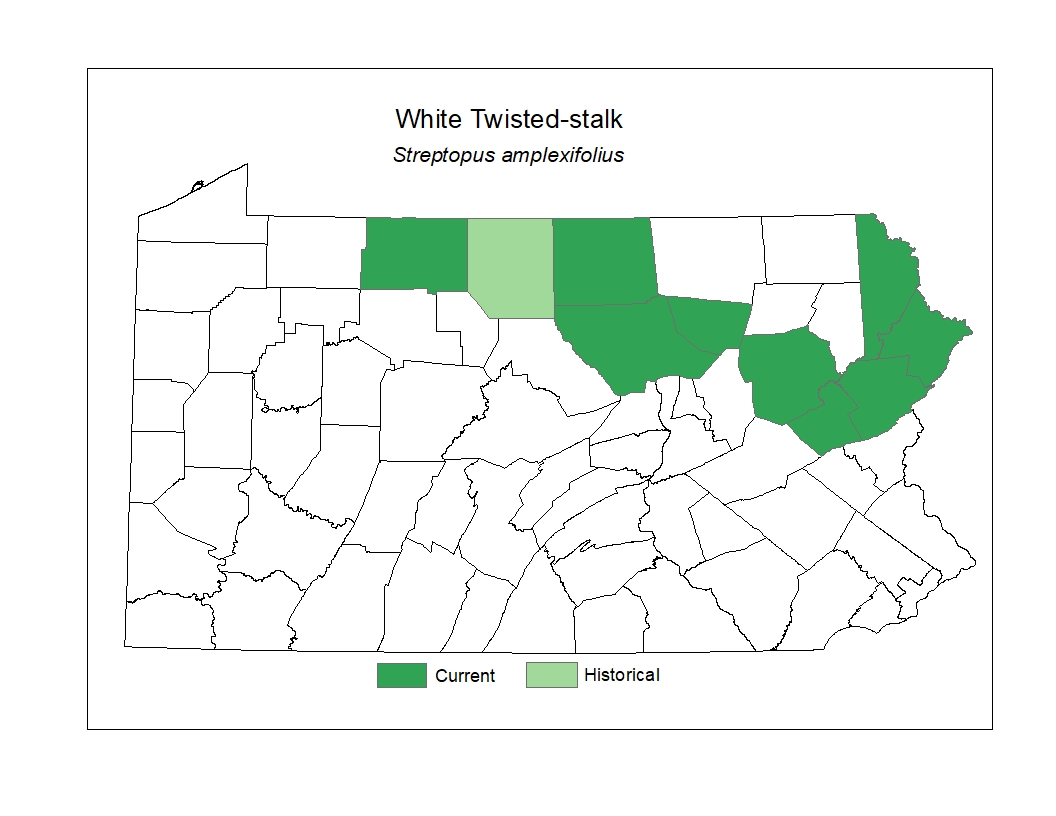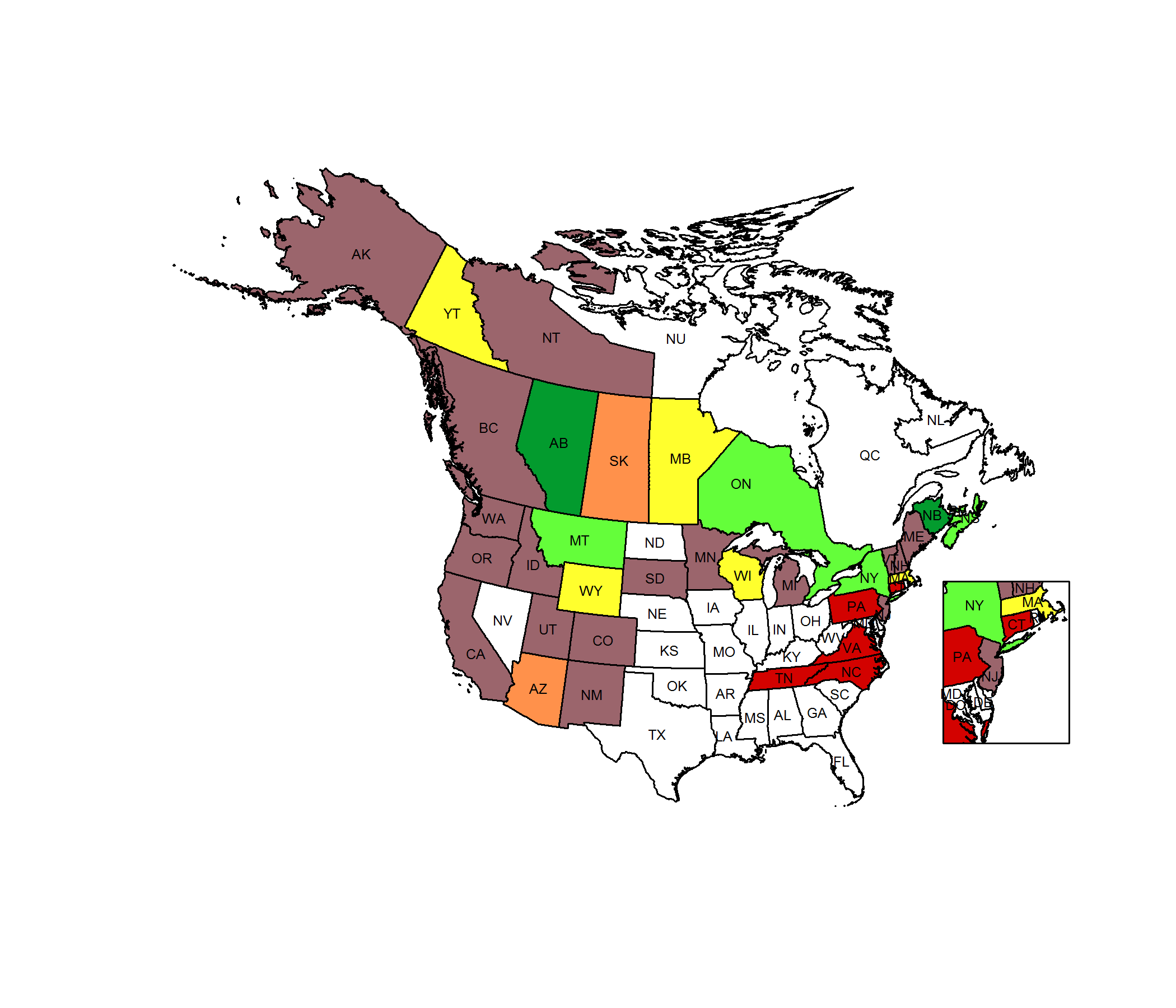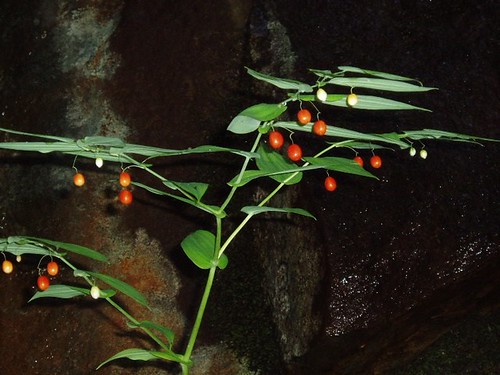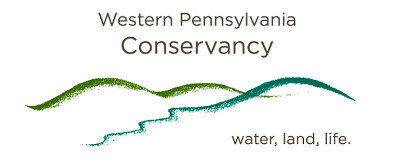 Species Factsheets
Species Factsheets
Streptopus amplexifolius
Twisted-stalk
State Status: Pennsylvania Threatened (PT)
PBS Status: Pennsylvania Endangered (PE)
Federal Status:
Global Rank: G5
![]() rank interpretation
rank interpretation
State Rank: S1
Did You Know?
This fruit of this species is cathartic. For general sickness the steams and fruits can be used, and the whole plant can be used to help with stomache problems.
Description
Twisted-stalk (Streptopus amplexifolius) is a branched, more-or-less hairless, perennial herb reaching 1m in height. The leaves are alternately arranged along the stem, entire on the margin, sharp-pointed at the tip, and have bases that clasp the stem. The flowers, which are greenish/white in color and about 1cm in length, appear in May or June and occur singly or in pairs along the stem. The fruit is reddish and berry-like. The rose mandarin (Streptopus roseus) is a similar species with more hairy stems and leaves and pinkish flowers.
Rank Justification
Critically imperiled in the nation or state because of extreme rarity (often 5 or fewer occurrences) or because of some factor(s) such as very steep declines making it especially vulnerable to extirpation from the state.
PABS
The twisted-stalk has been given a rank of Endangered on the Plants of Special Concern in Pennsylvania list by the Pennsylvania Biological Survey, based on the relatively few recent records that have been documented in the state and its relatively specialized habitat.
Habitat
The species is found generally in moist woods throughout its range. In Pennsylvania, it typically grows on damp to dripping rock outcrops and cliffs, often in the vicinity of waterfalls, in cool woods and ravines.
Survey Dates
Flowers May - June
Distribution
It occurs mainly in the northeastern counties in Pennsylvania.

Conservation Status Map

NatureServe. 2017. NatureServe Explorer: An online encyclopedia of life [web application]. Version 7.1. NatureServe, Arlington, Virginia. Available https://explorer.natureserve.org.
https://practicalplants.org/wiki/Streptopus_amplexifolius
- NatureServe. 2018. NatureServe Explorer: An online encyclopedia of life [web application]. Version 7.1. NatureServe, Arlington, Virginia. Available at https://www.natureserve.org/explorer
- Pennsylvania Natural Heritage Program. 2018.
- Rhoads, A.F. and W.M. Klein, Jr. 1993. The Vascular Flora of Pennsylvania. American Philosophical Society, Philadelphia, Pennsylvania. Rhoads, A.F. and T.A. Block.
- 2007. The Plants of Pennsylvania: An Illustrated Manual. 2nd edition. University of Pennsylvania Press, Philadelphia, Pennsylvania.







